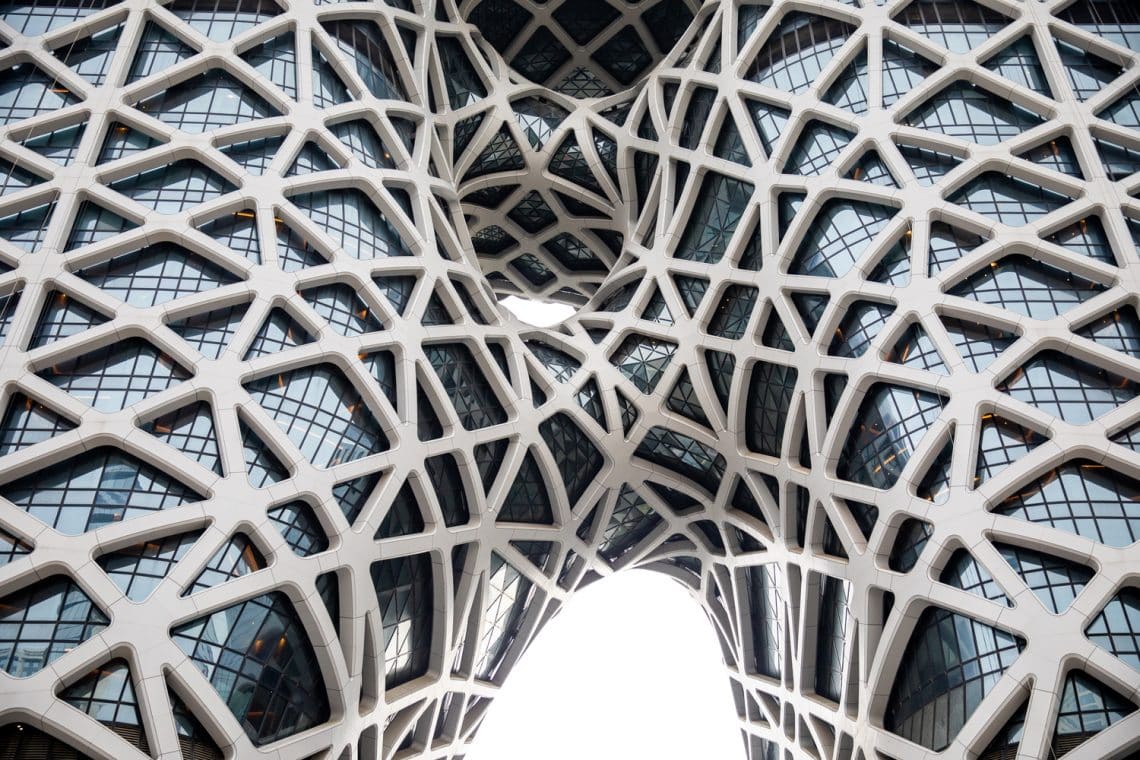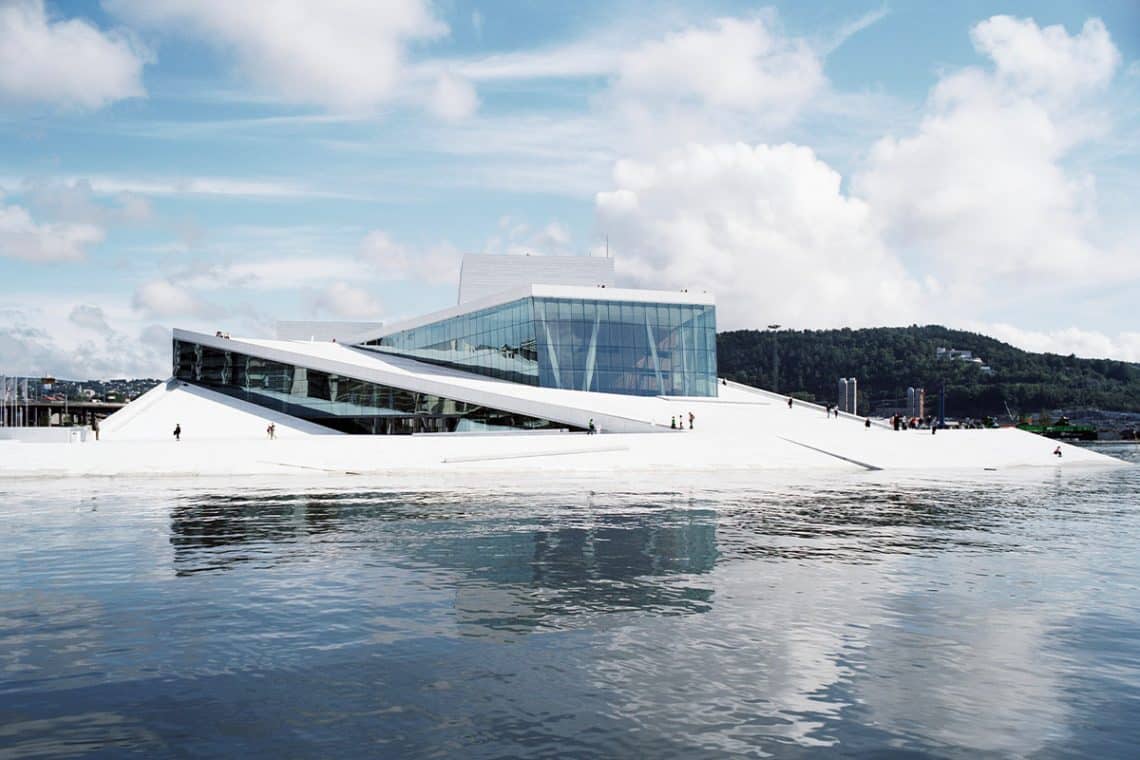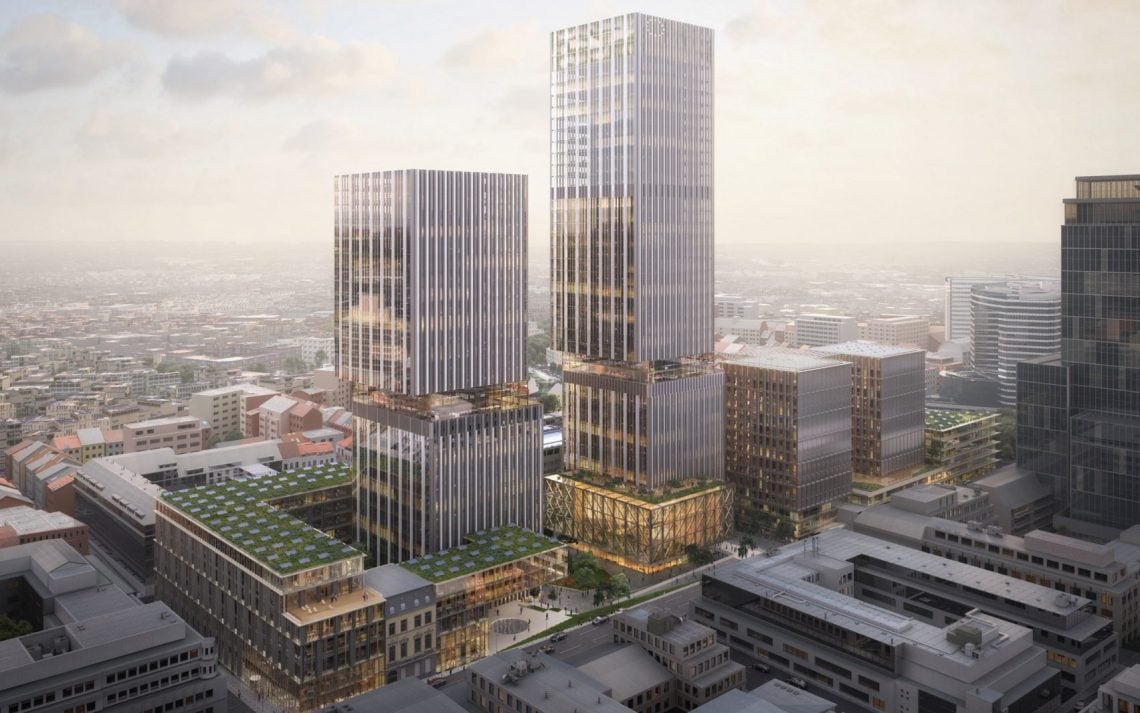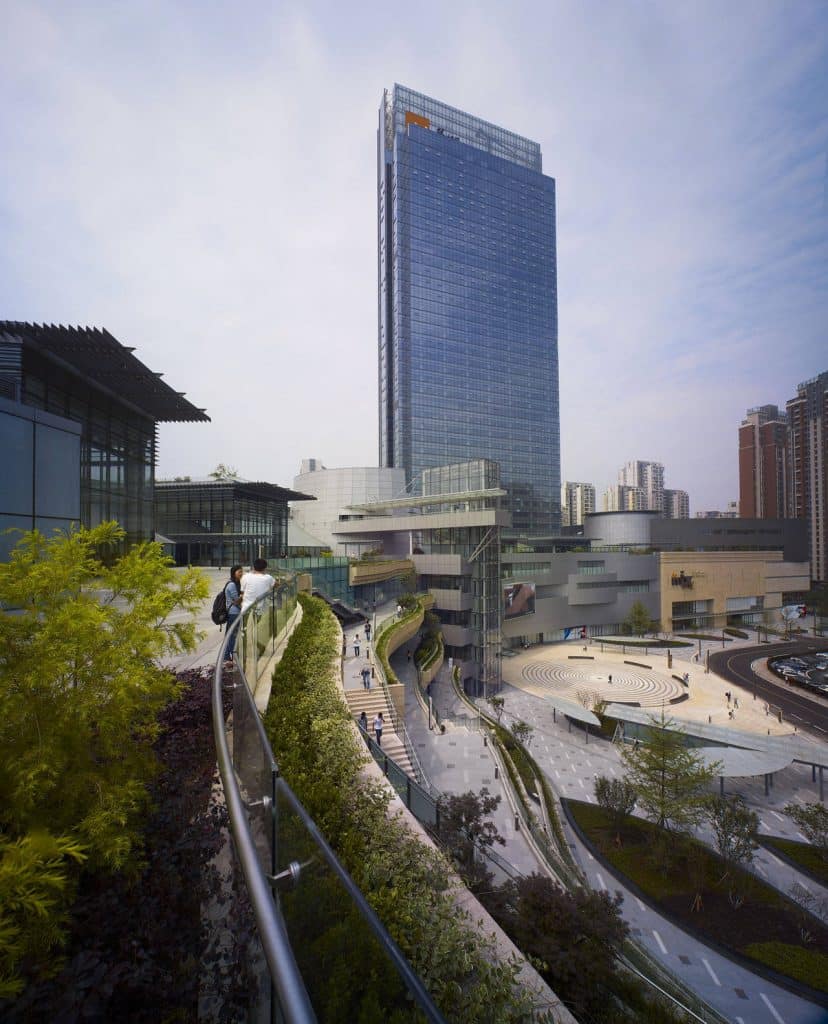Getting a job in one of the world’s top architecture firms is a dream come true for most students of the discipline.
However, the one problem that every applicant faces in any job application is that of rejection. And when you’re applying to one of the top architecture firms of the world, you want things to be as perfect as possible.
That’s why we talked with some of the top architecture companies about how they hire recruits. In the following, we’ve jotted down this wisdom in an easy to digest format for applicants to go through. We hope this will help you get a better chance of bagging your dream job.
Let’s dive in.
What are Starchitects Look For When Hiring

The Firms We’ll Be Focusing On
For our discussion, we interacted with representatives from the following architecture firms:
- Zaha Hadid Architects
- Snøhetta
- Perkins+Will
- BDP
- Callison
For each firm, we’ve focused on a list of seven points that start from the initial point of contact right up to the personal interview. In the following sections, we’ll take each company in turn and learn about its hiring process in detail.

Zaha Hadid Architects
First up, we’re going to discuss the hiring process and requirements at Zaha Hadid Architects, a world-renowned, London-based architecture firm that’s well known for working across multiple sectors. With close to a thousand successful projects spread across fifty-plus nations, this is a company any architecture student would love to work at.
-
The Hiring Process
When it comes to recruiting new candidates, Zaha Hadid focuses primarily on the skill-sets that they require. Based upon the specific skills they’re looking for in a candidate, the hiring channels can range from its official website, LinkedIn advertisements, HR headhunting sprees, and even graduate recruitment from campuses.
Initially, all applications are forwarded to the HR department, where the preliminary screening is done. Then, all the applications are registered in the digital application database, and the shortlisted ones are passed on to the hiring manager. Rejected applicants are notified accordingly.
Next, the hiring manager works in conjunction with the HR department to set up the initial interview. Here, the candidate is asked to meet with the HR Head and an associate from the project they’re applying for.
In the interview, the candidate is usually questioned regarding their architecture portfolio, how they think they can contribute to the organization, and why they’re a fit for the role. They’re also provided the opportunity to ask for more information regarding the position itself.
In specific cases, they might even be asked to undergo a software proficiency test. If they are selected in the first round, they’re invited for a final interview, usually with the project director.
-
The Best Method For Acquiring New Recruits
According to the people at Zaha Hadid, their most lucrative hiring channels have been the Refer-a-Friend scheme, third-party recruitment agencies, and HR-led headhunting campaigns. They do not place much stock in the website and online adverts, as these often attract a large number of unqualified applicants.
-
Key Elements The Company Looks For In An Applicant’s Resume
When it comes to scanning a candidate’s resume, the company lays prime importance on experience. Candidates are shortlisted based on whether they have enough experience for the role they are applying for and whether they have worked on similar projects or not.
Another aspect that’s looked into is familiarity with architectural software, such as Maya, Rhino, and Revit. Focus is also laid on career growth and progression and whether they would be a suitable match for the company work environment.
-
Key Elements The Company Looks For In A Candidate’s Portfolio
Like the resume, the company emphasizes whether the candidate’s portfolio includes projects identical to those they’re expected to work on. The experience they’ve garnered and the hurdles they’ve overcome are also taken into consideration.
The presentation quality of the portfolio and materials presented are also scrutinized, as these reveal a lot about the candidate’s commitment and dedication. The final deliverables are also assessed for quality.
-
Most Common Cause For Rejection At the Application Stage
One of the significant causes for rejection at the application stage is a mismatch in the experience required. Another factor for rejection can be a stagnation of the candidate’s growth trajectory or lack of proper software and design expertise.
-
Most Common Cause For Rejection After Interview
When a candidate is rejected after an interview, it can be because of one of two causes. Either the candidate’s portfolio doesn’t match their experience level as gauged through the interview process, or they’re not fit culturally for the organization.
-
Final Tips For Candidates
- First impressions matter
- Make CVs and Portfolios eye-catching
- Always remember to personalize your application to the role you’re applying for
- Maintain proper appearance and manners during the interview
- Always be prepared for surprises, and don’t compromise your individuality
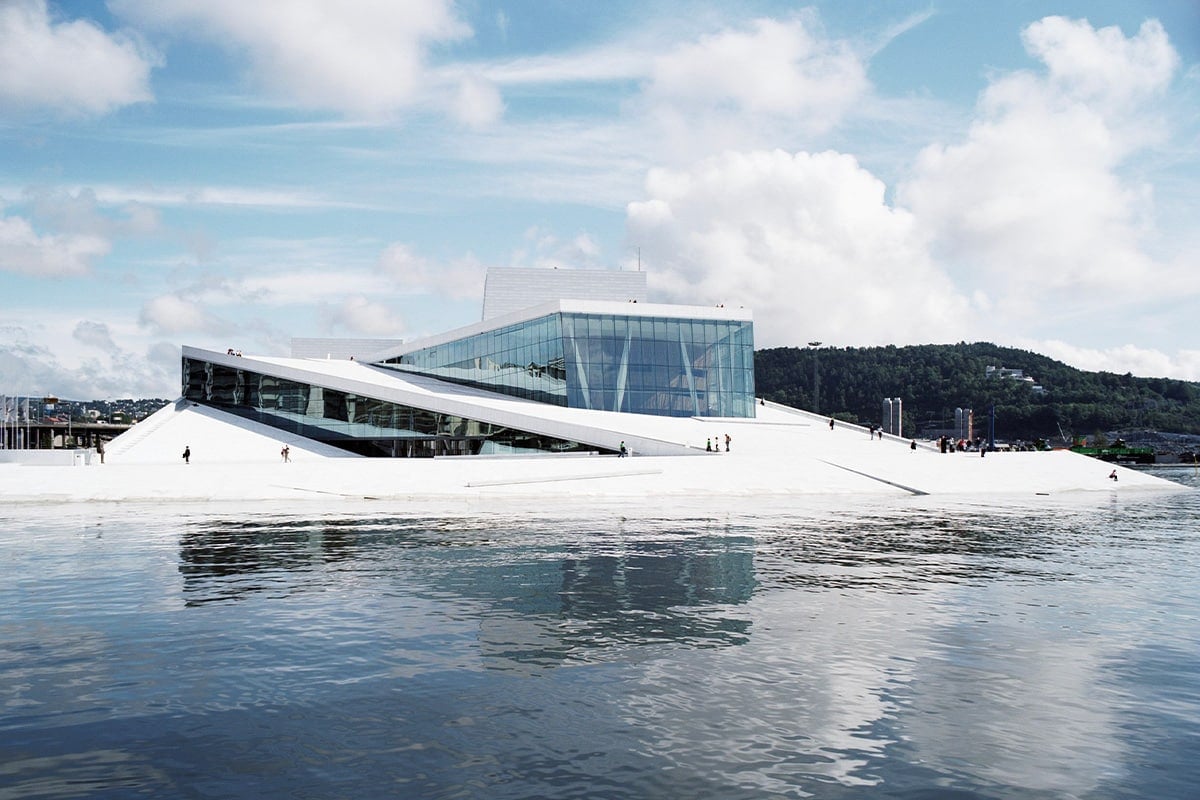
Snøhetta
Next, we’re going to take a look at the hiring system at Snøhetta, an international architecture firm headquartered in Oslo, Norway. Founded by Christoph Kapeller, Kjetil Trædal Thorsen, and Craig Edward Dykers, the firm has received notable accolades such as the World Architecture Award.
-
The Hiring Process
For Snøhetta, applications are accepted by snail mail, email, and also through the company portal. After collection and archival, the applications are reviewed to determine whether they match hiring needs. Suitable candidates are then shortlisted and called for the interview.
The company mostly prefers in-person interviews at the office. In case the hiring process is on for a senior or mid-level position, then another round of talks might be required for detailed discussions.
-
The Best Method For Acquiring New Recruits
For getting new recruits, the company primarily focuses on employee references or word-of-mouth references. At times, applicants are also interviewed and selected from advertisements. Other sources of application collection are the company portal and email.
-
Key Elements The Company Looks For In An Applicant’s Resume
When going through an applicant’s profile, the company focuses mainly on experience relevant to the role being applied for. Other factors that play decisive roles are digital and domain knowledge, steady employment history, and the ability to work as part of a team.
-
Key Elements The Company Looks For In A Candidate’s Portfolio
Regarding the portfolio, the company is focused on selecting candidates whose portfolios adequately represent their experience and communication abilities. Essential aspects on which emphasis is laid are the candidate’s editing and organizing efforts and the ability to make portfolio information easily understandable.
Through the portfolio examples, the hiring personnel mainly look for signs of steady progress in terms of innovation. Work that best represents a candidate’s skill-sets is appreciated more.
-
Most Common Cause For Rejection At the Application Stage
The most common cause for rejection of an application is a lack of proper hiring opportunities. Since the company receives a large volume of unsolicited applications, this is most often the case.
However, if the company does have vacancies, then a lack of experience and skill-sets can result in an application being rejected. In case the candidate is found to have a questionable employment history, even then, the application may be rejected at the initial stage.
-
Most Common Cause For Rejection After Interview
Even when multiple candidates are being interviewed, it’s most likely that the company has only a single position vacant. This results in all but one candidate being rejected simply because they fit the bill more accurately.
In terms of quality, the company primarily looks to hire strategic thinkers who can work well in a team environment. Also, communication skills are essential, so a candidate lacking proper communication ability can be rejected after the interview.
-
Final Tips For Candidates
- Never malign past or present employers
- Don’t mail applications to every person in the company
- Make sure the application is directed to the hiring manager or similar personnel
- Never be bogged down by no responses from companies you’ve applied to
- Always be clear and straightforward in your application; never be circumspect
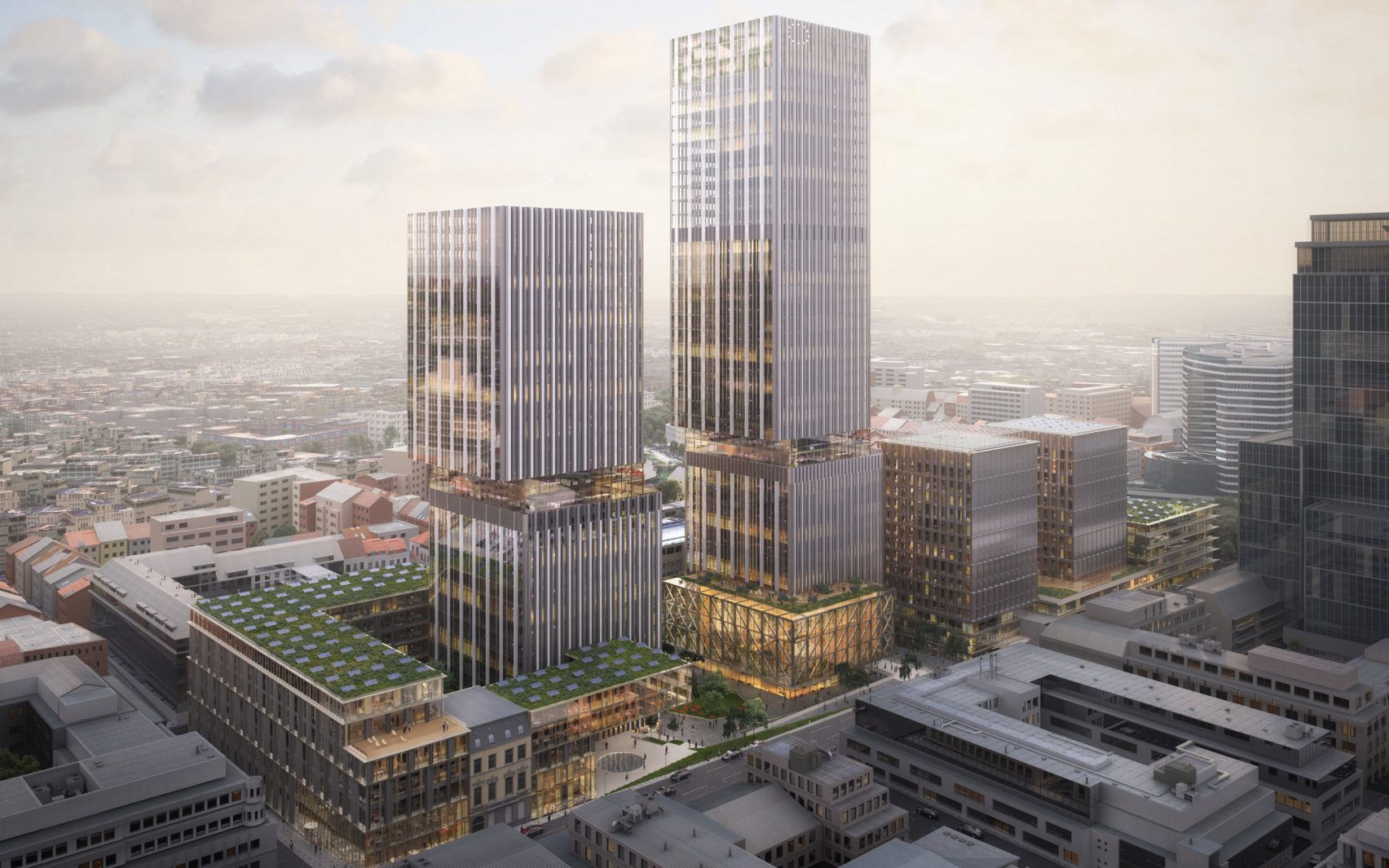
Perkins+Will
Established in 1935 by Lawrence Perkins and Philip Will, Perkins+Will is a global design firm specializing in sustainable design practices. With over twenty-four global offices and more than two thousand employees, this is undoubtedly one of the better architecture firms you can work at.
-
The Hiring Process
At Perkins+Will, talent acquisition is considered one of the primary reasons for the company’s success. The HR team at the company comprises expert recruitment specialists, who work in tandem with the hiring managers to source the best talent for the company.
At the initial level, the candidate is approached via a phone interview, followed by an in-person meeting. Ahead of the interview, the company makes an effort to learn about the potential hire as much as possible.
This is done to gain a clear understanding of the candidate’s work ethics, expertise, and skill levels, and also personal and professional interests. The company considers proper engagement with the potential candidate to be of utmost importance.
-
The Best Method For Acquiring New Recruits
The company makes use of an online portal onto which vacancy notices are posted. The candidates can then respond to specific, suitable vacancies through the portal itself. All essential details, such as portfolio and CV, can be uploaded through the portal.
Another method by which candidates are searched for is by scouring company websites, related publications, and social networking sites such as LinkedIn. The company even has a referral bonus program for existing employees to encourage referral hires.
Even when the company doesn’t have any opening, the hiring personnel are always on the lookout for talented individuals. This often leads to the development of early professional relationships that may result in job prospects in the future.
-
Key Elements The Company Looks For In An Applicant’s Resume
This varies with the role that the person is applying for. Expertise in particular markets or skills, such as design software, is often required for specific roles. Experienced candidates are always preferred, though fresh graduates can be hired based on prior internship experience.
The company would also encourage applicants to link their resumes to a web-based portfolio. Such a portfolio should include relevant images of the project, along with explanatory documentation. This isn’t an essential requirement, however, and applications without a portfolio website are also processed.
-
Key Elements The Company Looks For In A Candidate’s Portfolio
When looking through any candidate’s portfolio, the hiring personnel at Perkins+Will look for projects that showcase the candidate’s creative faculties. Emphasis is also laid on innovative designs and work that showcases experience relevant to the role being applied for.
-
Most Common Cause For Rejection At the Application Stage
Primarily, candidates at the application stage are screened based on relevant experience and past work quality. In case there are any mismatches in the company expectations in these quarters, along with a lack of the desired skill-sets, the application is liable to be rejected.
-
Most Common Cause For Rejection After Interview
Apart from a lack of skills and experience, candidates can also be rejected if they fail to interact with the interview panel meaningfully during the interview. The company expects candidates to be curious and interactively engage with the interviewers.
Exhibiting a genuine interest in the firm, its work culture, and internal processes are all considered as signs that the candidate is genuinely interested in the role. At the same time, this also allows the interviewers to discern how the candidate prefers to work.
All this helps to determine whether the candidate is a match with the company’s work culture. In case of a mismatch in any of the above criteria, the candidate might be rejected even after an interview.
-
Final Tips For Candidates
- Be explicit in your application and portfolio
- Always be curious to know more about the job
- Don’t hesitate to ask questions in the interview itself
- Make sure you exhibit genuine interest in the role

BDP
Building Design Partnership, better known as BDP, is an international architecture firm based in the UK, but with offices worldwide. Founded in 1961 by George Grenfell-Baines and other partners, this is one of the better places to work for architecture professionals.
-
The Hiring Process
Initially, applications are filtered by the HR personnel, who select the candidates that are fit for the role. These applications are then passed on to the hiring director. Once the hiring director takes stock of the same, the candidate is called for an in-person interview.
BDP prefers to receive all job applications through its online recruitment portal (www.bdp.com/careers) instead of snail mail or email. The online portal helps the company fetch all essential details about the candidates and keep the same archives for future reference.
-
The Best Method For Acquiring New Recruits
The company is more inclined to hiring through its official website, although vacancies are announced via social media platforms such as LinkedIn and Twitter. BDP does not use third-party recruiters to meet its hiring demands.
-
Key Elements The Company Looks For In An Applicant’s Resume
At BDP, major focus is laid on discovering enthusiastic candidates who are a perfect fit for the company’s design methodologies. Equal weightage is given to relevant industry experience, excellent communication skills, and adeptness with architectural software such as Revit.
-
Key Elements The Company Looks For In A Candidate’s Portfolio
When creating a portfolio, the most crucial aspect that HR at BDP focuses on is the good judgment that the candidate shows when selecting projects for inclusion. In any portfolio, it’s essential to select and include only the material suitable for the role in consideration.
That apart, the portfolio a candidate is sharing needs to be authentic and entirely comprising projects the candidate has handled themselves. The projects included should be reflective of the candidate’s experience and skill set. Further, the portfolio should also be representative of the candidate’s personality.
-
Most Common Cause For Rejection At the Application Stage
Applications are mostly rejected in case the candidate is found lacking the required experience. At higher levels of hiring, an absence of leadership skills can be a cause for rejection. The inability to handle design software such as Revit can also lead to rejections.
-
Most Common Cause For Rejection After Interview
When a candidate has been rejected after the final interview, it’s most likely because they were found to be at odds with the firm’s values. Another probable cause for rejection of a candidate is the better suitability of other applicants.
-
Final Tips For Candidates
- The CV should be easy on the eyes; pay special attention to font, formatting, and colors
- Be aware of immigration rules and requirements in the country you’re applying
- Keep a watch on the company’s social media channels for new openings
- Alternatively, in case there’s no vacancy at present, candidates should apply via the portal

Callison
Initially based in Seattle, Washington, Callison was founded by Tony Callison in 1975 and worked across multiple sectors. In 2015, Callison merged with RTKL Associates to form CallisonRTKL, headquartered in Baltimore, Maryland.
-
The Hiring Process
Candidates applying to this company need to do so through the company’s applicant tracking system. Initially, resumes are screened by the internal hiring personnel for determining suitability. Then, the shortlisted resumes are forwarded to the hiring manager.
Once the hiring manager shortlists a candidate, an on-phone screening is conducted by the HR department. The outcome of this initial phone-interview is shared with the hiring manager.
In case a candidate is found suitable after the phone interview, they are called for an in-person interview. The interview panel usually comprises the hiring manager and project associates. However, depending on the candidate’s location, remote interviews via video-conferencing may also be conducted.
The number of interviews can vary based on the candidate’s suitability and the role being applied for. Once a candidate passes all the interview levels, their references are checked and verified before finalizing the hire.
At Callison, the hiring process can extend for several months or may even be over in under a week. Also, it’s expected that the candidates do their due diligence on the firm and be prepared to ask any questions they have about the company and the role they’ve applied to.
-
The Best Method For Acquiring New Recruits
The company considers employee referrals to be its top recruitment source, followed by information shared via industry-specific websites. Professional social media platforms such as LinkedIn are also used for hiring new recruits.
-
Key Elements The Company Looks For In An Applicant’s Resume
When it comes to resume scanning, hiring personnel primarily focus on whether the candidate has the relevant experience for the role. Additional qualifications, such as relevant certifications and professional degrees, are considered as advantageous.
-
Key Elements The Company Looks For In A Candidate’s Portfolio
For evaluating an architecture candidate’s portfolio, the emphasis is laid on the designs’ quality, the designer’s skill and their ideation of the concept. Creativity is always a plus, so if the candidate is adept at drawing or painting, that is undoubtedly an added advantage.
-
Most Common Cause For Rejection At the Application Stage
A sub-par portfolio with lackluster or run-of-the-mill designs can result in immediate rejection. Candidates without sufficient experience for the post being applied for can also face rejection at this stage.
-
Most Common Cause For Rejection After Interview
When a candidate is rejected at the interview stage, this is primarily because of a lack of proper communication skills. Inexperienced candidates or those who lack the required educational qualifications are also rejected at this stage.
-
Final Tips For Candidates
- Never forget to submit a portfolio
- Get your application package reviewed before submission
- Avoid formatting, spelling, or grammatical mistakes
Final Words
So, now that you know about the hiring process at some of the best architecture firms worldwide, you can easily take your pick from among them. Just select the one you think would be best suited for your career trajectory, and apply accordingly.
Just keep in mind the hiring process, interview tips, and finer details about what these firms look for in candidates, and you’ll do just fine. And don’t forget to research the role you’re applying for, as this will help you land the job more quickly.
All the best!
Related Articles
Is Being An Architect Worth It?
What Is The Purpose Of An Architecture Portfolio?
19 Best Urbanism, Design, Architecture Podcasts to Follow
What Skills Are Required to be an Architect?
How Working From Home Is Helping Architects Save Money
What Skills Are Required To Be An Architect?
Are Architecture Internships the Most Important Jobs Of Your Career?
How Can Architects Promote Themselves?
Learn How To Become An Architect
How to Ace a Skype [Web] Architecture Job Interview Right Now
Learn How To Ace Your Architecture Phone Interview
25+ Things to Consider Before Accepting Your [Architecture] Dream Job
Architecture And The Culture Of Long Hours



